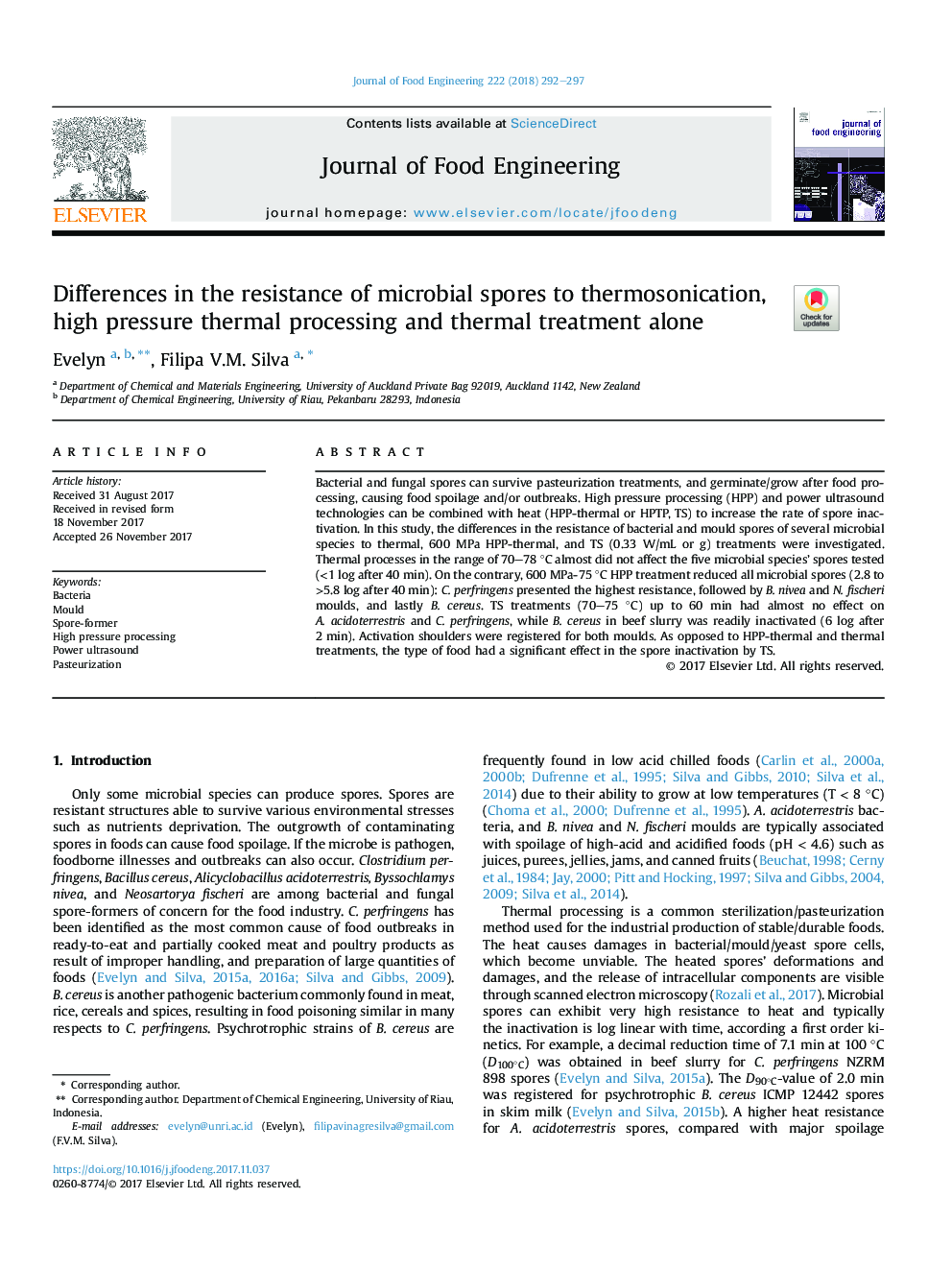| کد مقاله | کد نشریه | سال انتشار | مقاله انگلیسی | نسخه تمام متن |
|---|---|---|---|---|
| 6664796 | 1427079 | 2018 | 6 صفحه PDF | دانلود رایگان |
عنوان انگلیسی مقاله ISI
Differences in the resistance of microbial spores to thermosonication, high pressure thermal processing and thermal treatment alone
ترجمه فارسی عنوان
تفاوت در مقاومت اسپورهای میکروبی به ترموسونیکاسیون، پردازش حرارتی فشار بالا و تنها درمان حرارتی
دانلود مقاله + سفارش ترجمه
دانلود مقاله ISI انگلیسی
رایگان برای ایرانیان
کلمات کلیدی
باکتری، قالب، اسپور سابق، پردازش فشار بالا، اولتراسوند قدرت، پاستوریزه کردن،
موضوعات مرتبط
مهندسی و علوم پایه
مهندسی شیمی
مهندسی شیمی (عمومی)
چکیده انگلیسی
Bacterial and fungal spores can survive pasteurization treatments, and germinate/grow after food processing, causing food spoilage and/or outbreaks. High pressure processing (HPP) and power ultrasound technologies can be combined with heat (HPP-thermal or HPTP, TS) to increase the rate of spore inactivation. In this study, the differences in the resistance of bacterial and mould spores of several microbial species to thermal, 600 MPa HPP-thermal, and TS (0.33 W/mL or g) treatments were investigated. Thermal processes in the range of 70-78 °C almost did not affect the five microbial species' spores tested (<1 log after 40 min). On the contrary, 600 MPa-75 °C HPP treatment reduced all microbial spores (2.8 to >5.8 log after 40 min): C. perfringens presented the highest resistance, followed by B. nivea and N. fischeri moulds, and lastly B. cereus. TS treatments (70-75 °C) up to 60 min had almost no effect on A. acidoterrestris and C. perfringens, while B. cereus in beef slurry was readily inactivated (6 log after 2 min). Activation shoulders were registered for both moulds. As opposed to HPP-thermal and thermal treatments, the type of food had a significant effect in the spore inactivation by TS.
ناشر
Database: Elsevier - ScienceDirect (ساینس دایرکت)
Journal: Journal of Food Engineering - Volume 222, April 2018, Pages 292-297
Journal: Journal of Food Engineering - Volume 222, April 2018, Pages 292-297
نویسندگان
Evelyn Evelyn, Filipa V.M. Silva,
